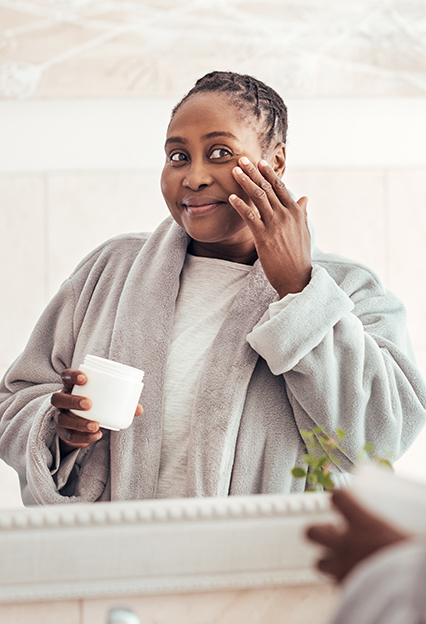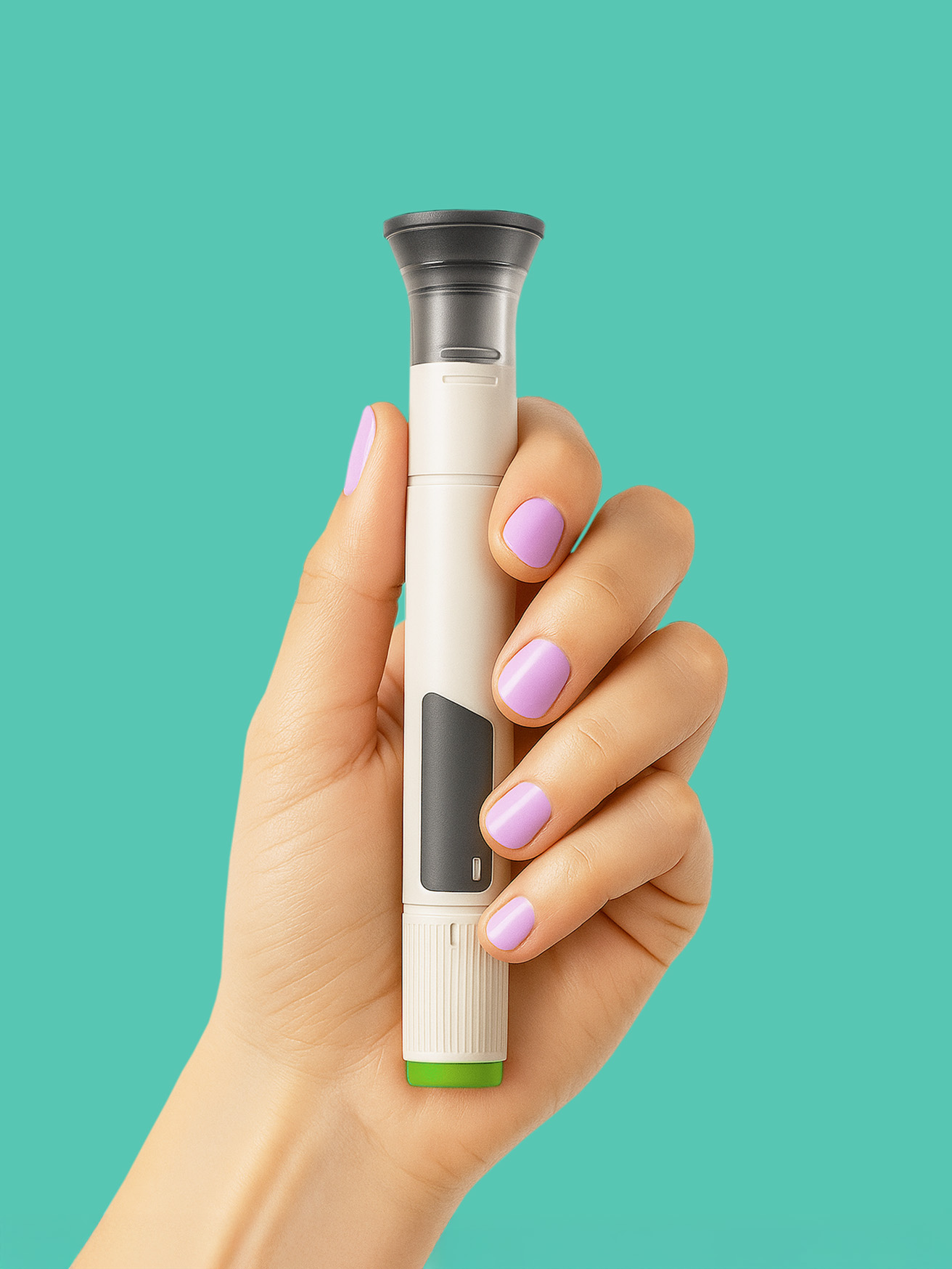Back to blog
How to break the cycle of stress and sleepless nights
Date:
Sep 26, 2025
Oct 21, 2025
Time:
3-5 min

It’s a story many women know too well: you’ve powered through a jam-packed day with meetings, errands, dinner and family needs, and when you finally climb into bed, you’re exhausted and expect your body to crash. Instead, your mind flips on like a light switch. Suddenly, you’re replaying conversations, mentally writing tomorrow’s to-do list, or stressing about not getting enough sleep.
Sound familiar? You’re not alone. Stress-related insomnia is one of the most common sleep struggles women face, and it’s not a coincidence.
Let’s unpack why stress and sleep are so tightly linked, and the steps you can take to break the cycle.
Why stress hits women harder at night
Stress isn’t just “in your head.” It’s a physical response your body has when it feels pressure or threat.
- The cortisol effect:
Cortisol, your main stress hormone, is meant to keep you alert. But when levels stay high into the evening, your body never fully shifts into rest mode. - The mental load:
Women often carry invisible responsibilities, from work projects to remembering the school forms to managing aging parents. This constant multitasking can leave the brain buzzing long after the day is done. - Anxiety spiral:
When sleep doesn’t come, the worry about not sleeping and getting enough rest adds more stress, creating a vicious cycle.

The stress-sleep cycle
The tricky part is that sleepless nights make stress worse.
- Poor sleep lowers resilience, so challenges feel bigger the next day.
- It can increase irritability and anxiety, adding more stress.
- Lack of rest affects focus, which can make work or caregiving even more overwhelming.

Stress keeps you awake, and lack of sleep makes stress harder to manage, making many feel trapped in a repetitive cycle.
Breaking the cycle: 5 Stress-relief strategies that actually work
It’s not about trying harder to relax. It’s about giving your mind and body small, consistent cues that it’s safe to let go.
1. Create a transition time
Jumping straight from work or chores into bed is like slamming the brakes on a moving car. Your body needs time to shift gears.
Try this: Set aside a short amount of time before bed for a calming ritual, whether it’s stretching, skincare, or reading something light.
2. Unload your thoughts
When your brain is busy, it helps to get everything out of your head and onto paper.
Try this: Write tomorrow’s top 3 priorities, then jot down one thing you’re proud of from today. This helps you feel prepared and less stressed.
3. Use breath as a reset button
When stress keeps your heart racing, breath can bring your body back to calm.
Try this: Inhale for 4 counts, exhale for 6. Repeat for a few minutes. This signals your nervous system to relax.
4. Redefine “Me Time”
Many women stay up late scrolling just to have a moment for themselves. What feels like relaxing actually steals rest.
Try this: Spend 15 minutes of real me-time earlier in the evening. Go for a walk, relax with a tea, or unwind to music, so you don’t need to sacrifice your sleep.
5. Know when to ask for help
If stress and sleeplessness linger more than a few nights a week for months, it’s not just a bad phase. That’s when professional support can help you reset.
Try this: Reach out to a healthcare provider who understands women’s health. Coaching, therapy, or medication may be part of the solution, and that’s okay.
{{slider-second}}
The bottom line
If stress is stealing your sleep, it doesn’t mean you’re failing, it means your body is asking for care. By making space to transition, offload, and reset, you can shift from restless nights to restorative ones.
At Wylo, we know women face unique stressors that impact sleep. That’s why we offer personalized treatments and ongoing support to help you break the cycle and finally get the rest you deserve.
Ready to take the first step toward better sleep? Start your journey today by joining Wylo Health.

This article is for informational purposes only and does not constitute medical advice. The information contained herein is not a substitute for and should never be relied upon for professional medical advice. Always talk to your doctor about the risks and benefits of any treatment.
Heading 1
Heading 2
Heading 3
Heading 4
Heading 5
Heading 6
Lorem ipsum dolor sit amet, consectetur adipiscing elit, sed do eiusmod tempor incididunt ut labore et dolore magna aliqua. Ut enim ad minim veniam, quis nostrud exercitation ullamco laboris nisi ut aliquip ex ea commodo consequat. Duis aute irure dolor in reprehenderit in voluptate velit esse cillum dolore eu fugiat nulla pariatur.
Block quote
Ordered list
- Item 1
- Item 2
- Item 3
Unordered list
- Item A
- Item B
- Item C
Bold text
Emphasis
Superscript
Subscript
More articles for curious minds
Get in touch today!
Don't be shy, you can ask us anything! Whether you’re curious about our services, need guidance, or just want to say hello—don’t hesitate to reach out!













